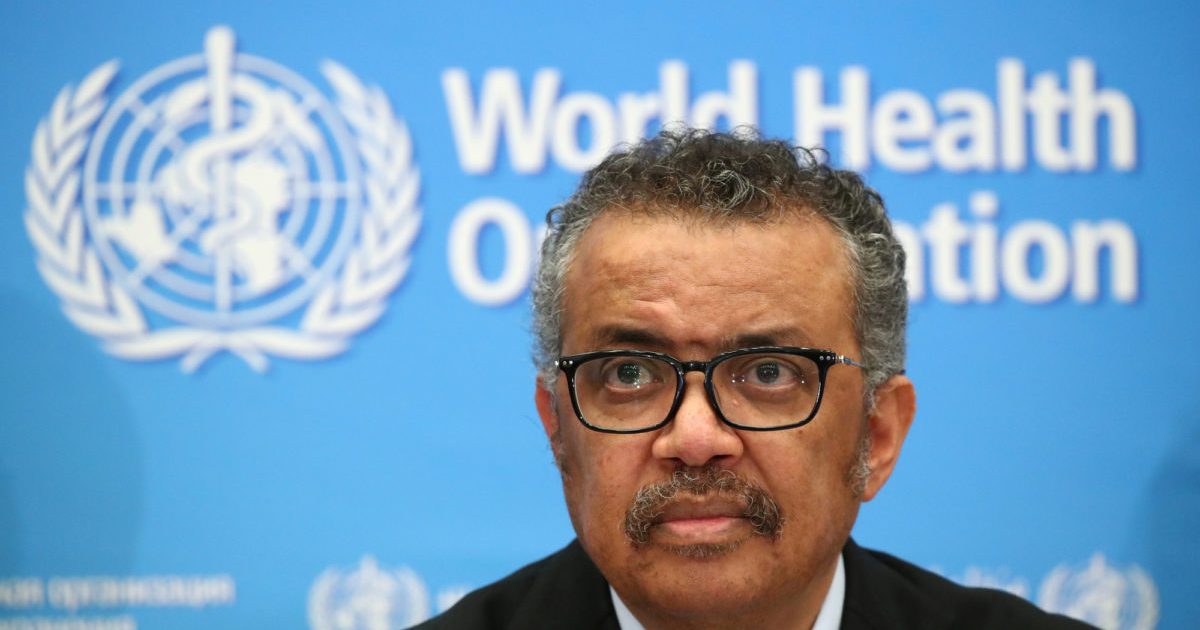- Coronavirus fits the criteria for a pandemic although the WHO is hesitant to use the word.
- For now, coronavirus is more mild than past pandemics but that could change over the next few weeks.
- China’s dropping number of cases has cast the nation as an expert in containment despite harsh criticism over Beijing’s handling of the disease just weeks ago.
With new outbreaks across Europe and the Middle East, it’s clear that containing the coronavirus is becoming impossible.
The U.S., England and France have already started bracing for what many believe is an inevitable outbreak. Even as the number of cases outside China rise and countries around the world warn their citizens about it’s inevitable coming, the World Health Organization (WHO) says coronavirus isn’t a pandemic.
Is Coronavirus a Pandemic?
The answer to that question depends who you talk to. WHO Chief Tedros Adhanom Ghebreyesus says, “using the word pandemic does not fit the facts.” So what does the word pandemic actually mean?
The Centers for Disease Control and Prevention says it’s a disease that spreads across regions. Coronavirus certainly checks that box.
WHO’s definition is a bit more stringent. The organization says it’s when a new disease spreads around the world resulting in a greater-than-expected number of cases. By contrast, the organization dubs the spread of a disease within a community or region an epidemic.
Coronavirus could certainly be classified as a pandemic by that definition, unless WHO is arguing that its spread to Europe and beyond was expected.
How does it Compare to Other Pandemics?
The last pandemic was H1N1, or the swine flu, back in 2009-2010. In that case, nearly a quarter of the world’s population was infected.
Latest data show coronavirus has infected 80,980 people, but keep in mind that’s just two months into its spread. Preparedness will be the key factor in determining how much those numbers will balloon.
The new cases in Iran have health professionals worried because of the way the numbers are skewed. While the nation has reported nearly 100 cases, 16 people have died. According to a doctor interviewed by the BBC, that likely means there are many more people carrying the virus than the government is aware of:
It suggests fairly large numbers of people with minimal symptoms, or who are asymptomatic, that aren’t being tested or even being identified. Who knows how long it has been going on?
On top of that, the healthcare systems in nearby countries like Iraq and Afghanistan are lacking. Geopolitical tension will likely prevent healthcare workers from other nations from traveling there to help.
Researchers Point to Pandemic
Many argue that the coronavirus is a pandemic whether the WHO admits it or not. Two weeks ago, an infectious disease expert from Imperial College London said he believes “we’re in the early phases of a global pandemic.” In his view, only a third of the cases coming into the U.K. at that time were being identified.
Back when the virus was mostly contained in China, WHO said each infected individual would pass the virus to between 1.4 and 2.5 other people. With the disease capable of being spread before symptoms appear, the cases outside of China are likely to balloon over the next few weeks.
Stephen Morse, an epidemiologist at Columbia University, believes the coronavirus will never be truly eradicated, instead becoming a permanent flu-season fixture from here on out:
The actions [that were] taken in China — the Draconian efforts — are what happens when you’re trying to catch a galloping horse that’s already left the barn…
Earlier this month, infectious-disease expert at Johns Hopkins’ Center for Health Security Amesh Adalja said he believed the world was at the beginning of a “mild pandemic.”
Why Avoid the Label?
The debate over whether or not coronavirus is a pandemic has many wondering why the WHO would avoid the label. After all, the organization itself has said it believes countries around the world need to be better prepared for the virus’ spread.
Dr. Anthony Fauci, the director of the U.S. National Institute of Allergy and Infectious Diseases, says whether or not you call coronavirus a pandemic is a mater of semantics.
I think you could have people arguing each end of it. Pandemics mean different things to different people.
Part of the reason WHO is hesitant to label the coronavirus a pandemic is to avoid a repeat of H1N1. Back then, the WHO declared the virus a pandemic and was criticized for jumping the gun. Plus, with stock markets tanking and people becoming jittery, the WHO likely doesn’t want to create unnecessary panic.
Some believe WHO is shying away from calling coronavirus a pandemic for China’s benefit. Over the past few weeks, China has miraculously gone from being the villain to being the hero in this story. When the outbreak first began in Wuhan, many criticized Beijing’s reluctance to sound the alarm. Questions over the government’s suppression of news from within quarantined cities emerged.
Now that the number of new cases in China has started to dwindle, some are calling for governments around the world to draw on Beijing’s apparent expertise.
Bruce Aylward, the head of an international expert mission to China said the nation’s experience is valuable as the disease spreads:
Access the expertise of China. They have done this at speed and they know what they are doing. They are really, really good at it.
Disclaimer: The opinions expressed in this article do not necessarily reflect the views of CCN.com.
This article was edited by Sam Bourgi.




